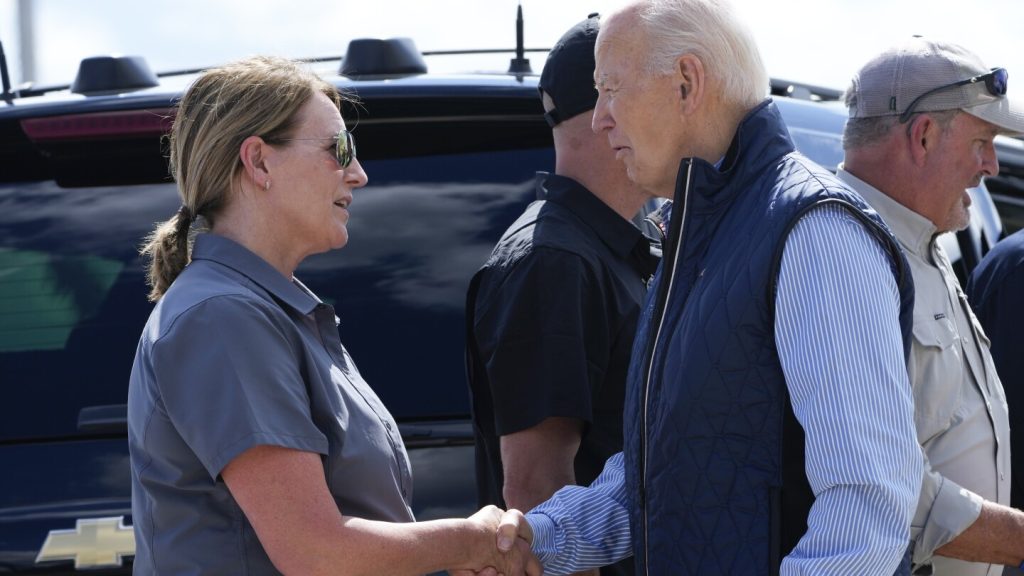The Federal Emergency Management Agency (FEMA) is facing criticism from residents and politicians, including Donald Trump, for its response to disasters like Hurricane Helene. There have been false claims that FEMA’s funding is going to migrants or foreign wars. President Joe Biden has defended FEMA’s work, stating that the agency has the money it needs to help communities right now, but will likely need more cash in the future. He has called on Congress to restore funding to the Small Business Administration’s disaster loan program.
FEMA has an operating budget and a disaster relief fund that gets replenished by Congress every year. The fund is used to pay for recovery from disasters like hurricanes, floods, and earthquakes. It also funds rebuilding from past disasters and projects to protect communities in the future. Public assistance from FEMA reimburses governments for debris removal and rebuilding, while individual assistance helps residents with emergency needs. FEMA coordinates with state and local governments during disasters like hurricanes, pre-positioning supplies and providing search-and-rescue teams.
Despite claims by critics, FEMA does have enough money to respond to Hurricane Helene at the moment, with $20 billion from Congress replenishing the fund. Long-term funding concerns remain, with FEMA anticipating the need for additional funding in the future to respond to disasters. FEMA had been working on a “supplemental” funding request to Congress before Helene hit, and Secretary Alejandro Mayorkas and President Biden have emphasized the need for more money. FEMA often has to request supplemental funding from Congress multiple times, as disasters can vary in their cost and impact.
When the disaster relief fund runs low, FEMA shifts to “immediate needs funding,” conserving money for life-saving missions during new disasters. Once the fund is replenished, money can flow again to longer-term recovery projects. However, FEMA does not provide enough funding for individuals to fully rebuild after a disaster. Assistance from FEMA is supplemental to insurance coverage, and those without insurance may not receive enough money to completely recover. This can lead to misunderstandings about FEMA’s role and the limitations of the assistance it provides.
In conclusion, FEMA plays a crucial role in responding to disasters and providing assistance to communities and residents in need. Despite criticisms and false claims about its funding and priorities, FEMA works within a budget set by Congress to support recovery efforts across the country. While the agency has the resources to respond to disasters like Hurricane Helene in the short term, additional funding may be needed to address long-term recovery needs. It is important for the public to understand what FEMA does and does not cover, especially in terms of individual assistance and rebuilding efforts.


